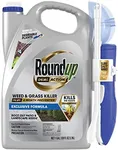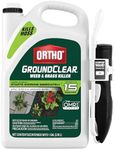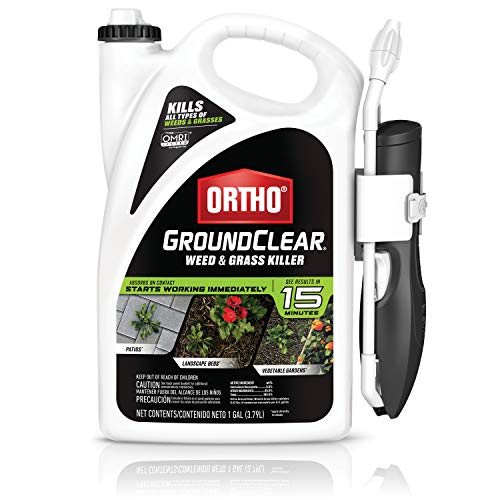Buying Guide for the Best Garden Weed Killers
Choosing the right garden weed killer can make a significant difference in maintaining a healthy and beautiful garden. The key is to understand your specific needs and the characteristics of the weed killer that will best address those needs. Here are some important specifications to consider when selecting a garden weed killer, along with explanations to help you make an informed decision.Type of Weed KillerWeed killers come in various types, including selective, non-selective, pre-emergent, and post-emergent. Selective weed killers target specific types of weeds without harming other plants, making them ideal for lawns and gardens with desirable plants. Non-selective weed killers, on the other hand, kill all plants they come into contact with and are best for areas where you want to clear all vegetation. Pre-emergent weed killers prevent weed seeds from germinating, while post-emergent weed killers target weeds that have already sprouted. Choose the type based on whether you need to protect certain plants or clear an entire area.
Active IngredientsThe active ingredients in a weed killer determine its effectiveness and safety. Common active ingredients include glyphosate, 2,4-D, and dicamba. Glyphosate is a non-selective herbicide that kills most plants, while 2,4-D and dicamba are selective herbicides that target broadleaf weeds. Understanding the active ingredients helps you choose a product that will effectively target the weeds in your garden without causing harm to other plants. Always read the label to ensure the active ingredients are suitable for your specific needs.
Application MethodWeed killers can be applied in various ways, including sprays, granules, and concentrates. Sprays are easy to apply and are ideal for targeting specific weeds or small areas. Granules are spread over a larger area and are activated by water, making them suitable for lawns and garden beds. Concentrates need to be mixed with water before application and are cost-effective for treating large areas. Choose the application method that best fits the size of your garden and the extent of the weed problem.
Residual EffectThe residual effect of a weed killer refers to how long it remains active in the soil after application. Some weed killers have a long residual effect, continuing to prevent weed growth for several months, while others break down quickly and require more frequent applications. If you need long-term weed control, look for products with a longer residual effect. However, if you plan to plant new vegetation soon, choose a weed killer with a shorter residual effect to avoid harming future plants.
Safety and Environmental ImpactSafety and environmental impact are crucial considerations when choosing a weed killer. Some products are more toxic and can pose risks to humans, pets, and wildlife. Look for weed killers that are labeled as safe for use around children and pets if you have them. Additionally, consider the environmental impact of the product. Organic and natural weed killers are generally safer for the environment and can be a good choice for eco-conscious gardeners. Always follow the manufacturer's safety instructions to minimize risks.






















